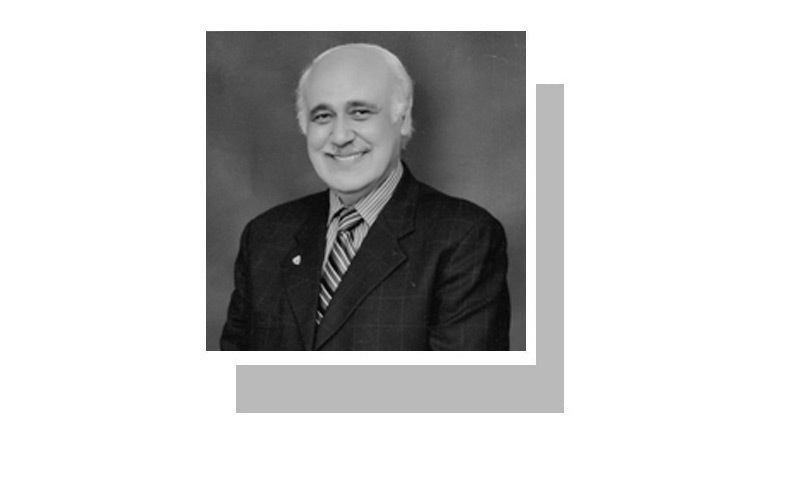IS Urdu a dying language, or is it just that those with a command over the language are a dying breed?
Whoever read of the death on June 1 of the litterateur Dr Asif Farrukhi felt diminished by it. It is four years since his friend and mentor Intizar Husain died on February 2016. Intizar sahib was 91 years old when he passed away, full of years and laden with honours that he enjoyed, as honours should be, in compos mentis. He received the Sitara-i-Imtiaz in 2007. Six years later, his name was shortlisted for the Man Booker International Prize. His literary output spread over a lifetime of endeavour was acknowledged at the Lahore Literary Festival in 2014, and some months later, the usually xenophobic French lauded him with the Ordre des Arts et des Lettres.
In Dr Asif Farrukhi’s case, he was given the Prime Minister’s Literary Award by the Pakistan Academy of Letters in 1997, followed by the Tamgha-i-Imtiaz. Future honours will adorn his tombstone.
Dr Farrukhi’s presence at any literary festival was a lesson in modesty.
Wedded to public health by training, Dr Farrukhi’s public mistress was literature. His output as an author and as an editor were eclipsed by his contribution as co-founder of the seminal Karachi Literary Festival and the Islamabad Literary Festival, both of which he managed with his collaborator Ms Ameena Saiyid. Inevitably, petty politics slither like a serpent into even literary Edens. Dr Farrukhi and Ameena quit the KLF and created its clone — the Adab Festival.
Dr Farrukhi’s presence at any literary festival — whether one managed by him or simply attended by him — was a lesson in self-effacing temperance and considerate modesty. He never advertised his talents, preferring to let others bask in their own weaker sunshine. Given the rostrum, though, he spoke with knowledge, authority and conviction. He spoke in Urdu not simply because it was his mother tongue, but because one suspects he regarded English as his stepfather tongue, and Urdish as an illegitimate dialect. His life was a battle against the elitist attitudes of those students who, in their applications for higher studies abroad, describe Urdu as a foreign language.
It is ironical that Dr Farrukhi, himself a physician, should have succumbed to an illness (diabetes) to which none of his professional colleagues could find a cure. His name will be repeated at many literary festivals and gatherings in the future. His true legacy though will be his passion for language, for the space literature should be given in any society that aspires to call itself civilised, and for his selfless endeavour in making literature festivals an elixir for the old and a stimulant for the young.
A language dies when people speaking or writing it well die. Language death has been described as “a process in which the level of a speech community’s linguistic competence in their language variety decreases, eventually resulting in no native or fluent speakers of the variety”. Academic linguists quote Hebrew as an example. “Hebrew,” according to Claude Hagège, “was a dead language at the beginning of the 19th century. It existed as a scholarly written language, but there was no way to say ‘I love you’ and ‘pass the salt’ — the French linguists’ criteria for detecting life.” One can understand why these two phrases — to do with love and gastronomy — should be given such prominence by the sensuous French. What might the equivalents in Pakistan be? ‘I love myself’ and ‘Pass me my mask’?
In 1947, our founding fathers had hoped that Urdu would be the adhesive that would bind our provincial disparities together. The separation of East Pakistan in 1971 put paid to that. Since then, regional languages such as Punjabi, Pashto, Sindhi, Balochi, or dialects like Seraiki, Hindko, and Brahui (to name a few) have struggled for air. Whoever hoped that the 18th Amendment passed in 2010 would encourage provinces to implement their own curriculum and syllabi must wait. Meanwhile, the development of a national curriculum acceptable to all constituent elements of our federation should not degenerate into an exercise in political horse-trading. If that happens, all one can expect after 13 years of imperfect education will be a badly trained mule.
It is a humiliation that the only common factor pervasive throughout our country today is not a unified approach to family planning or education or social services, but a common vulnerability to Covid-19. Unable to live together, we are being taught by this virus how to die, one by one.
Years from now, survivors will wonder why our generation could not get agree on a unified policy on lockdowns. The federal government has its own, provincial governments their own, and the disaffected, disobedient public its own. We blabber at cross purposes. Death, however, speaks only one dialect.
The writer is an author.
Published in Dawn, June 4th, 2020











































